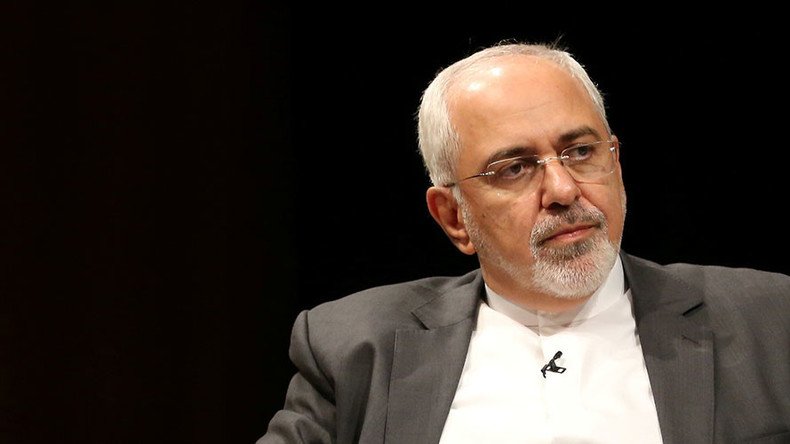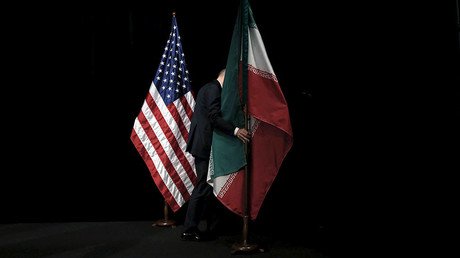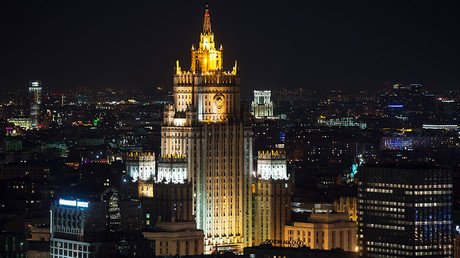Trump’s decision to decertify nuclear deal harms US credibility – Iranian FM

US President Donald Trump’s recent decision not to recertify Tehran’s compliance with the 2015 nuclear agreement will only undermine Washington’s own credibility in the international arena, Iranian Foreign Minister Mohammad Javad Zarif said.
“Nobody else will trust any US administration to engage in any long-term negotiation because the length of any commitment, the duration of any commitment from now on with any US administration would be the remainder of the term of that president,” the top Iranian diplomat told CBS News.
At the same time, he said that Iran will not withdraw from the deal, as other parties to it, including Russia, Germany, France and the UK, reaffirmed their commitment to the obligations taken under the 2015 agreement.
Zarif said that the support of most parties to the agreement means that the implementation of the deal would move forward despite the US efforts to derail it. He also praised the deal, on which he personally worked for two years, as a triumph of diplomacy.
The Iranian minister expressed his hope for a potential diplomatic “reset” of relations with the US, but said at the same time that the current US administration apparently suffers from a cognitive disorder when it comes to the Middle East.
“I believe the Trump administration is closing its eyes on the realities of our region. We believe it will be important for the United States, for the Trump administration to exercise a reset in its cognitive disorder with regard to our region,” he said.
Earlier, Iranian President Hassan Rouhani expressed similar thoughts, saying on Friday that the US is “now more than ever isolated” because of its opposition to the deal. He also confirmed Tehran’s commitment to the agreement but only as long as Iranian national interests are preserved.
Iran would “never bow to any foreign pressure,” Rouhani said, adding that the accord cannot be renegotiated or amended.
‘Throwing future into uncertainty’: Trump’s actions ‘part of economic war against Tehran & its partners in EU, Asia’ https://t.co/ME0paGpVI7
— RT (@RT_com) October 14, 2017
On Friday, Trump announced that he is deferring the matter to the US Congress, so that it could amend the agreement and “strengthen its enforcement.” He once again claimed that Tehran committed “multiple violations” of the deal, despite the International Atomic Energy Agency’s confirmation of Iran’s compliance. The US also imposed a fresh set of sanctions against the Islamic Republic, unrelated to its nuclear program.
The US president’s move provoked outcry around the world. Many countries, including US allies, condemned the step by saying that it undermines international security. The 2015 Iran nuclear deal is not a “bilateral agreement,” and it is not up to the US to terminate it, EU foreign policy chief Federica Mogherini said.
The Russian Foreign Ministry also slammed Trump’s Friday speech, saying that any use of “aggressive” rhetoric in international relations is “unacceptable” and “doomed to fail.” It also denounced the actions of the US administration as “vestiges of the past” that “are at odds with the modern norms of civilized communication between countries.”
However, Israel and Saudi Arabia welcomed Trump’s decision and called it a “courageous” move.
The Iranian nuclear deal was negotiated in summer 2015 by the administration of then-US President Barack Obama and five other powers – Russia, France, Germany, China and the United Kingdom – as well as Iran.
Under the terms of the deal, in exchange for the gradual lifting of sanctions, Tehran agreed to reduce the number of its uranium enrichment centrifuges by two-thirds, cap its enrichment below the level needed for weapons-grade material, reduce its enriched uranium stockpile by 98 percent and allow international inspections.
Tehran’s full compliance was repeatedly confirmed by the IAEA, the UN nuclear watchdog, which reiterated on Friday that Iran is subject to the “world’s most robust nuclear verification regime” and that so far the agency has “had access to all locations it needed to visit.”
Trump, however, has repeatedly called the agreement the “worst deal ever negotiated,” and pledged to “dismantle” it.














